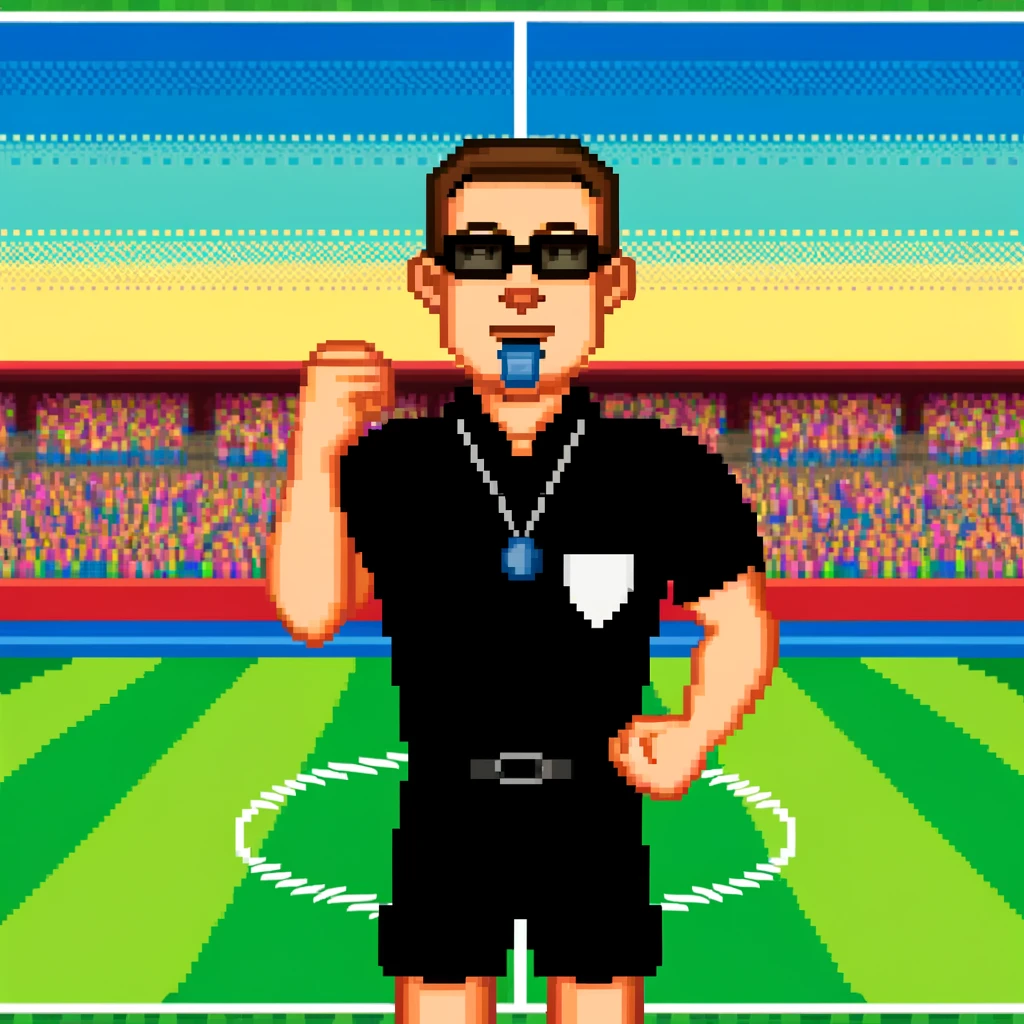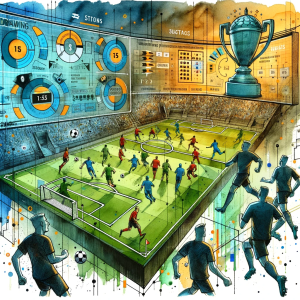
How Perfectionism Affects Soccer Referees
In the fast-paced world of soccer, referees play a crucial role in maintaining the integrity and fairness of the game. They make real-time decisions under intense pressure, managing everything from fouls to offside calls. Given these high stakes, it’s essential to understand what influences a referee’s performance on the field. A recent study explores the intricate relationship between perfectionism, cognitive appraisals, and psychobiosocial experiences in soccer referees, shedding light on how these factors can enhance or hinder their perceived performance.
Understanding Perfectionism in Soccer Referees
Perfectionism is a personality trait characterized by setting high personal standards and striving for flawlessness. It comes in two main forms: self-oriented perfectionism and socially prescribed perfectionism. Self-oriented perfectionism involves setting high standards for oneself, while socially prescribed perfectionism is about meeting the high expectations imposed by others.
The study in question used the multi-states (MuSt) theory as a framework to understand how these forms of perfectionism impact soccer referees. MuSt theory views performance as a dynamic process influenced by personality traits, task demands, and the environment. It emphasizes the role of cognitive appraisals—how individuals perceive and evaluate their ability to handle tasks—and psychobiosocial experiences, which encompass emotional, cognitive, and social factors affecting performance.
Key Findings
The study involved 67 soccer referees, both men and women, with varying levels of experience. They completed questionnaires assessing their levels of perfectionism, cognitive appraisals, and psychobiosocial experiences before a game, and self-evaluated their performance afterward. The results were illuminating:
- Positive Correlations: Both self-oriented and socially prescribed perfectionism were positively correlated with challenge appraisals (viewing tasks as opportunities for growth) and functional psychobiosocial experiences (positive emotional and cognitive states). These, in turn, were linked to higher self-evaluated performance.
- Indirect Effects: Through multiple mediation analyses, it was found that the positive effects of both forms of perfectionism on self-evaluated performance were mediated by challenge appraisals and functional psychobiosocial experiences.
Implications for Soccer Coaching and Player Development
These findings have significant implications for soccer coaching and player development. Understanding how perfectionism influences performance can help in designing better training programs for referees and players alike.
Emphasizing Challenge Over Threat
Coaches and trainers can foster a mindset that views high-pressure situations as challenges rather than threats. This positive appraisal can lead to higher engagement and better performance. Encouraging referees and players to see difficult tasks as opportunities for growth can enhance their psychobiosocial experiences, leading to improved performance on the field.
Balancing Perfectionism
While perfectionism is often seen as a double-edged sword, this study suggests that its positive aspects can be harnessed effectively. Self-oriented perfectionism, when balanced with supportive environments that reduce the fear of external criticism, can drive individuals to achieve high standards without the debilitating effects of anxiety and stress. Training programs should aim to balance the drive for perfection with healthy coping strategies to manage external pressures.
Enhancing Psychobiosocial Experiences
Positive psychobiosocial experiences—such as confidence, emotional stability, and strong social support—are crucial for peak performance. Coaches can create environments that enhance these experiences by providing constructive feedback, fostering team cohesion, and promoting mental well-being.
Practical Tips for Coaches and Trainers
- Foster a Growth Mindset: Encourage referees and players to view challenges as opportunities to improve rather than threats to their performance. Use positive reinforcement and highlight their strengths.
- Balance Standards with Support: Set high standards but also provide the necessary support to meet them. This includes emotional support and practical resources for skill development.
- Promote Positive Psychobiosocial Experiences: Create a supportive environment where referees and players feel confident and socially connected. Offer training sessions that address both physical and mental aspects of performance.
- Implement Self-Regulation Strategies: Teach referees and players self-regulation techniques such as mindfulness, goal-setting, and self-reflection to manage stress and maintain focus during games.
Conclusion
The study highlights the complex interplay between perfectionism, cognitive appraisals, and psychobiosocial experiences in influencing the performance of soccer referees. By understanding these relationships, coaches and trainers can better support referees and players, helping them to achieve their best performance on the field. The findings underscore the importance of fostering a positive appraisal of challenges and enhancing the overall psychobiosocial environment in sports.
Step into the forefront of soccer innovation with ‘This Week in Soccer’.
Our newsletter is more than just words; it’s an interactive journey through the complexities of soccer analytics and strategy. Whether you’re a coach, educator, or enthusiast, our content is designed to spark curiosity and enhance your understanding. Subscribe today and be part of a community pushing the boundaries of soccer education.

